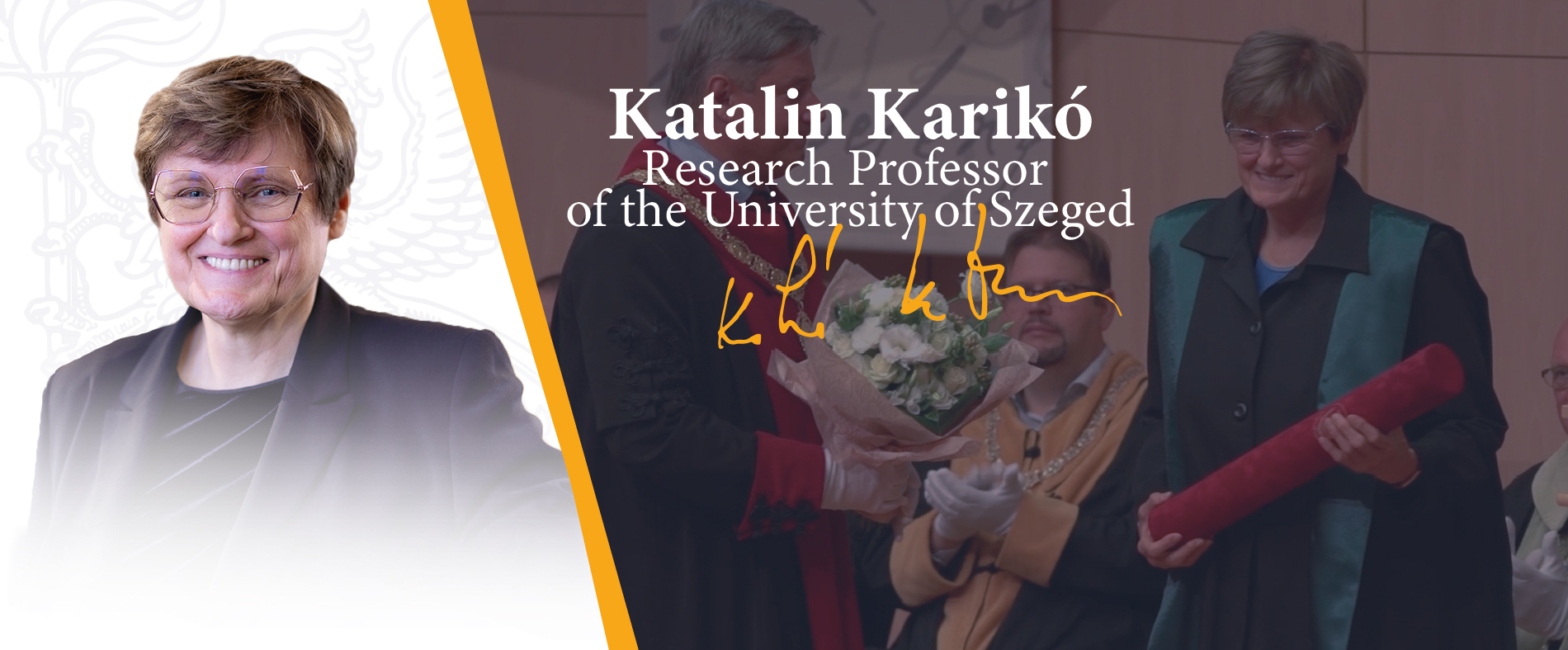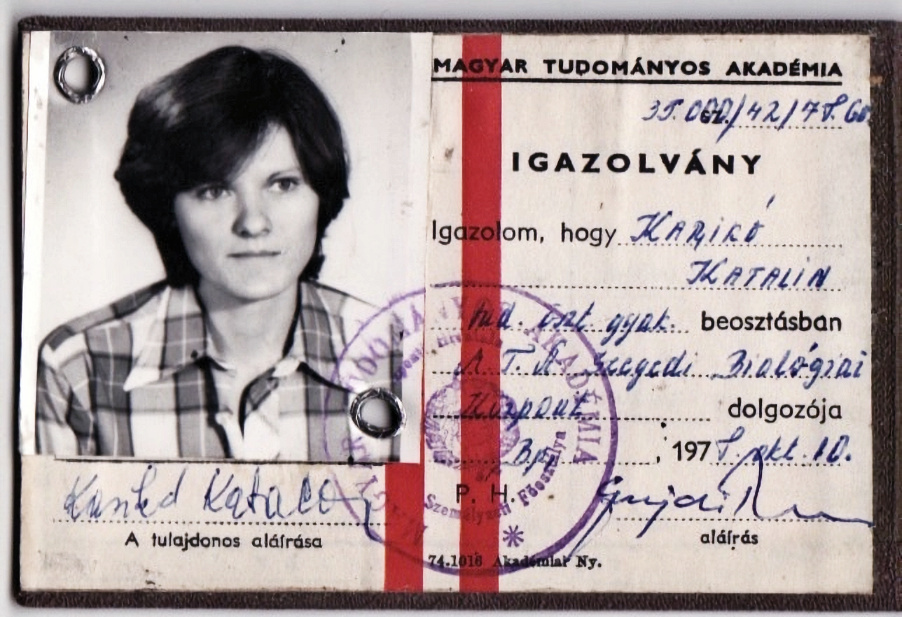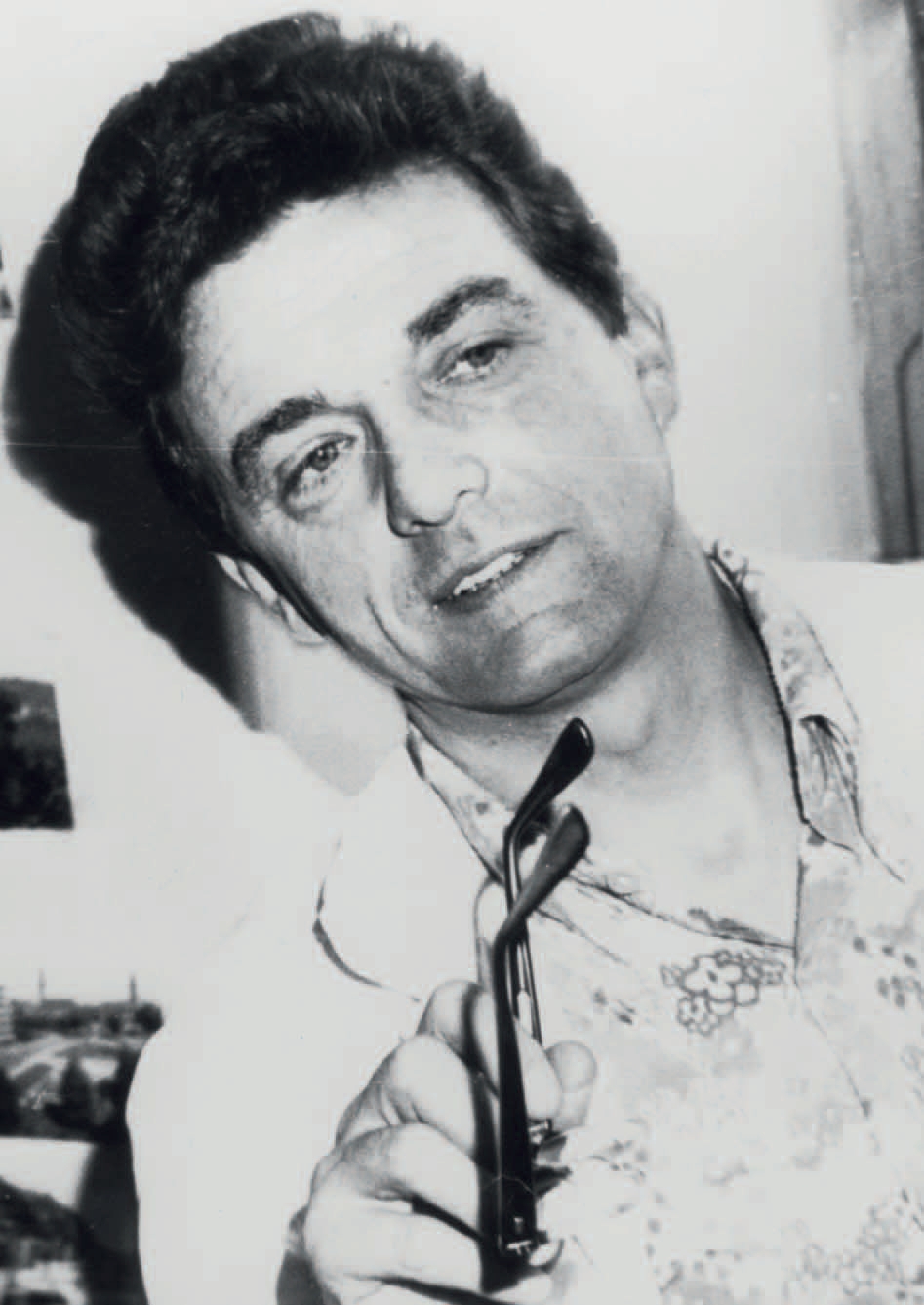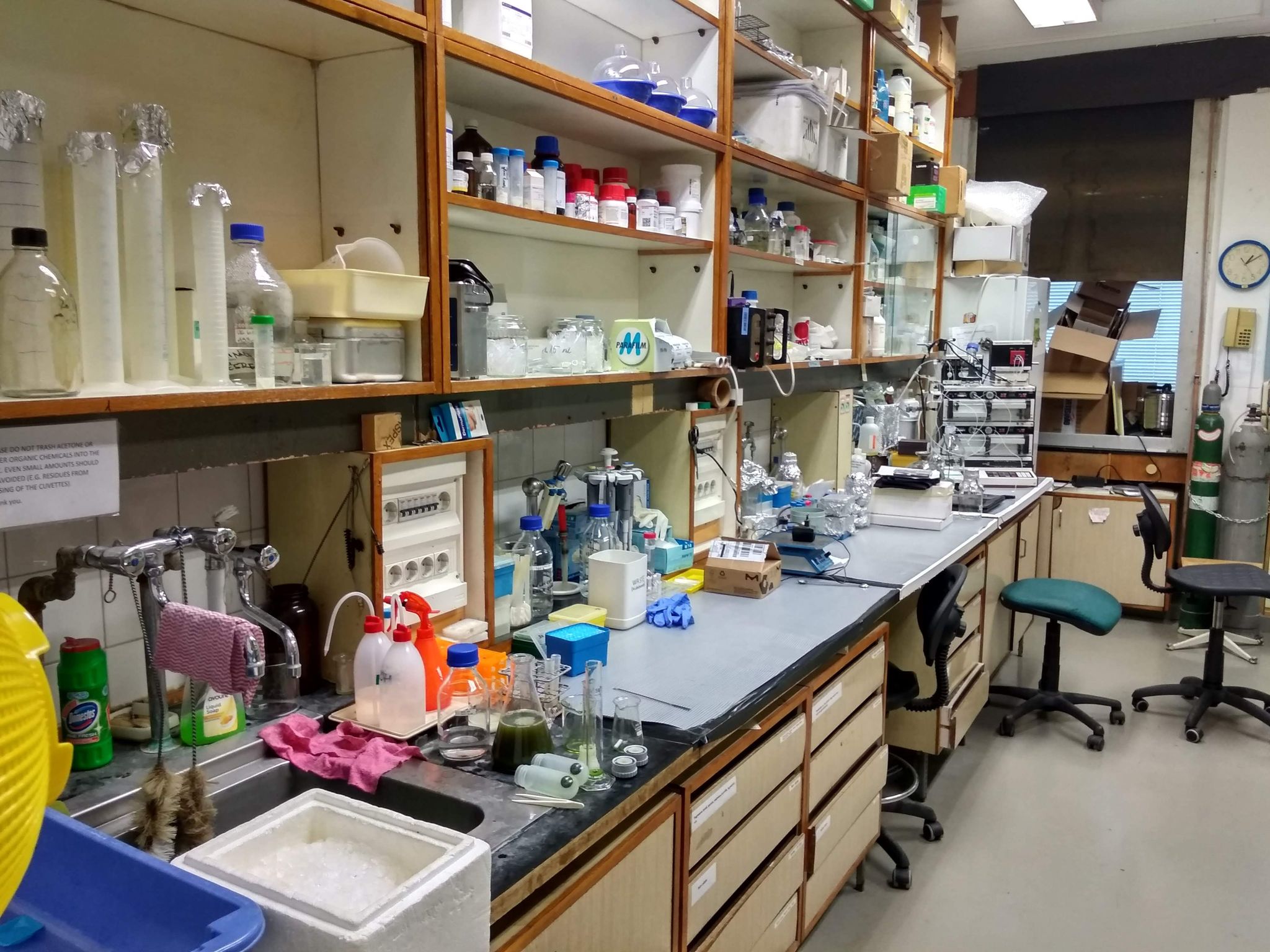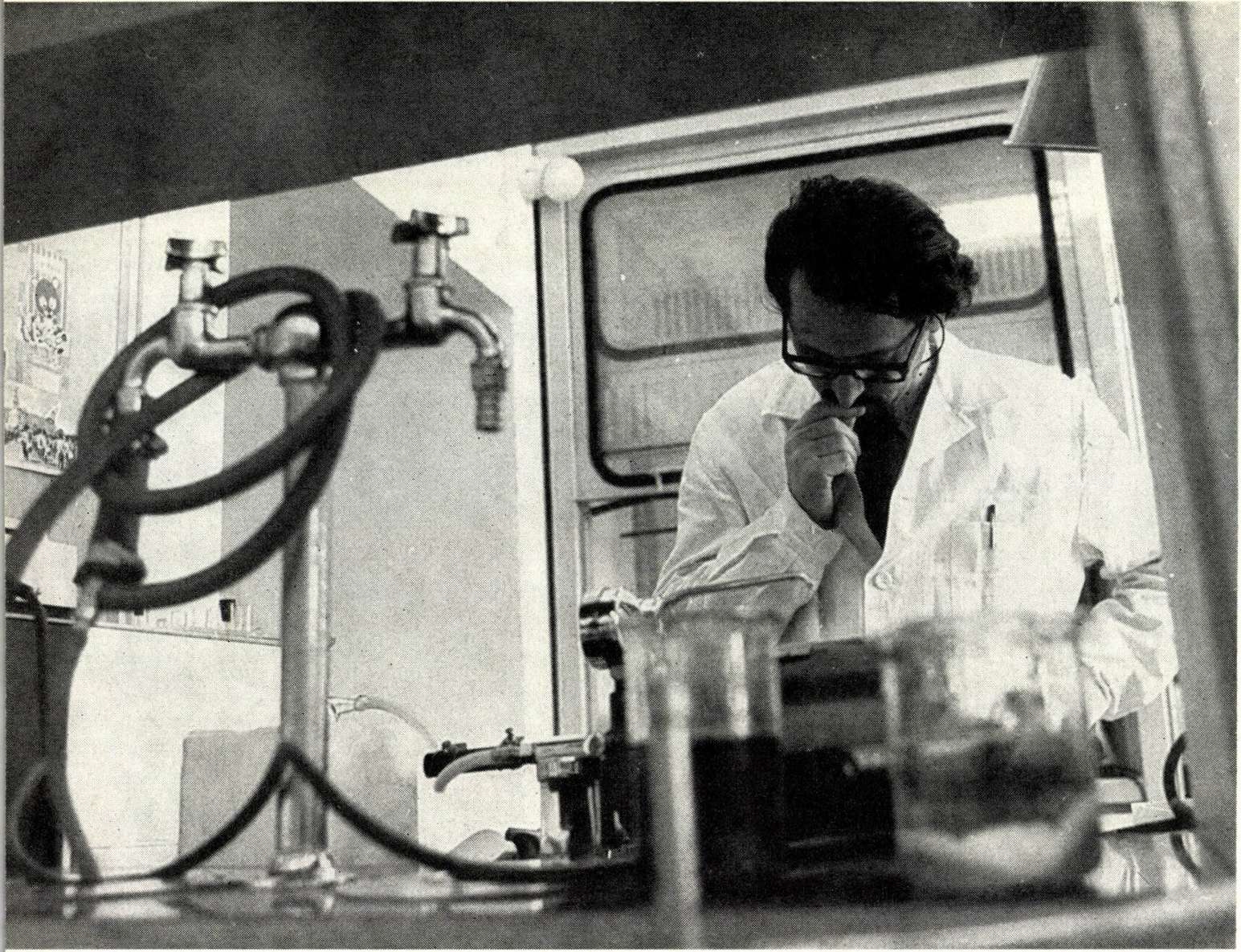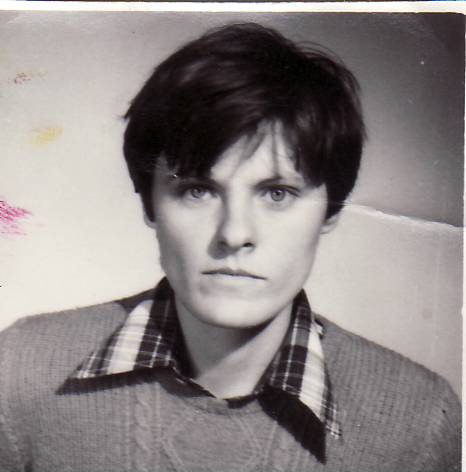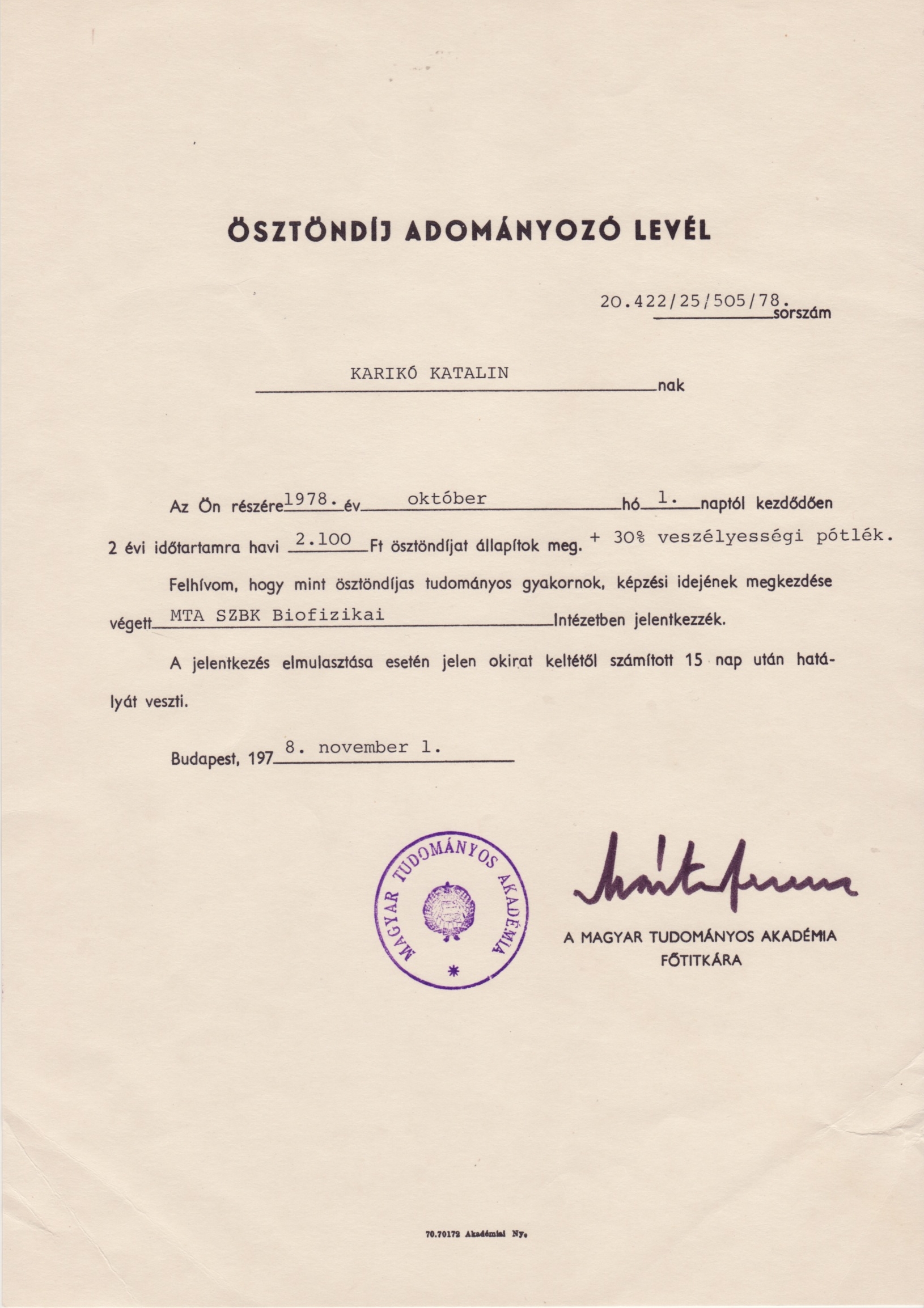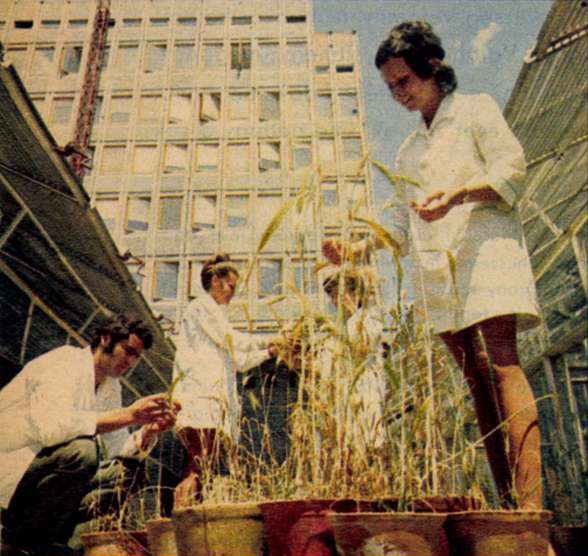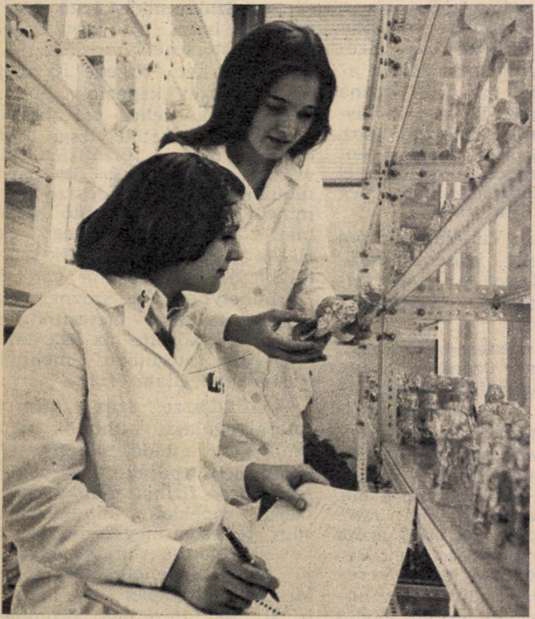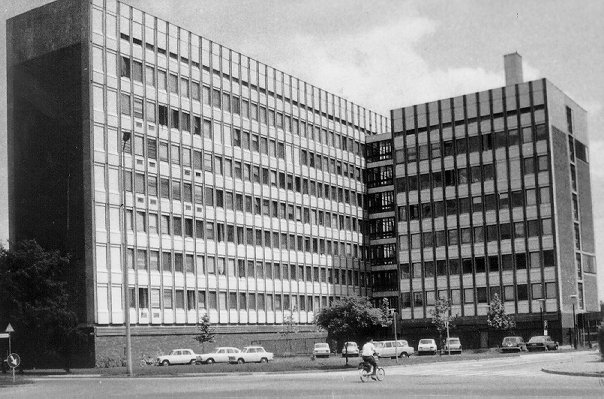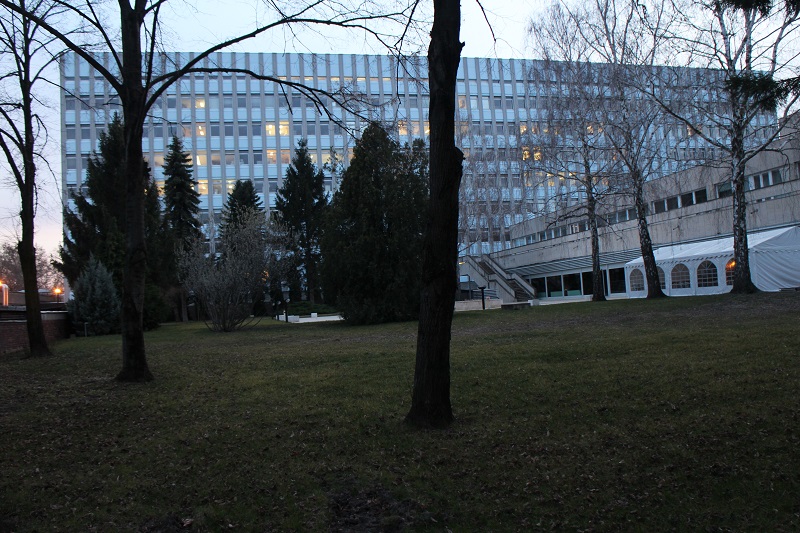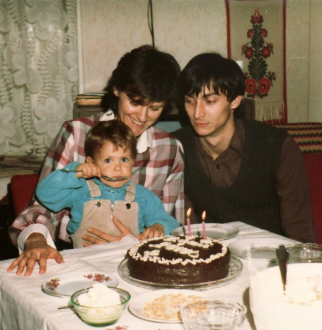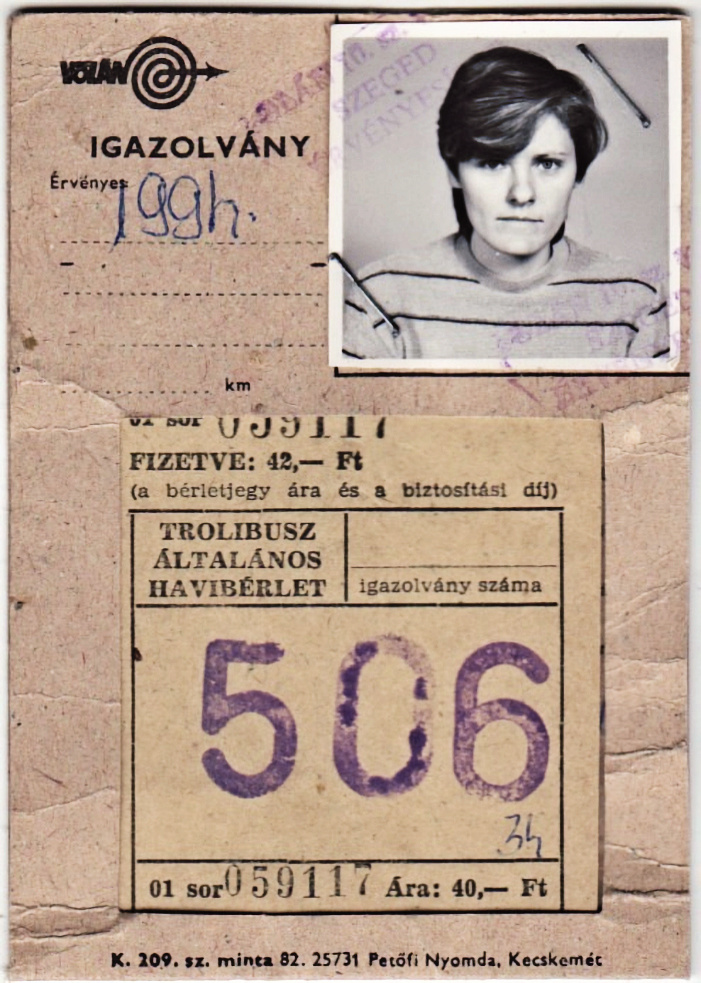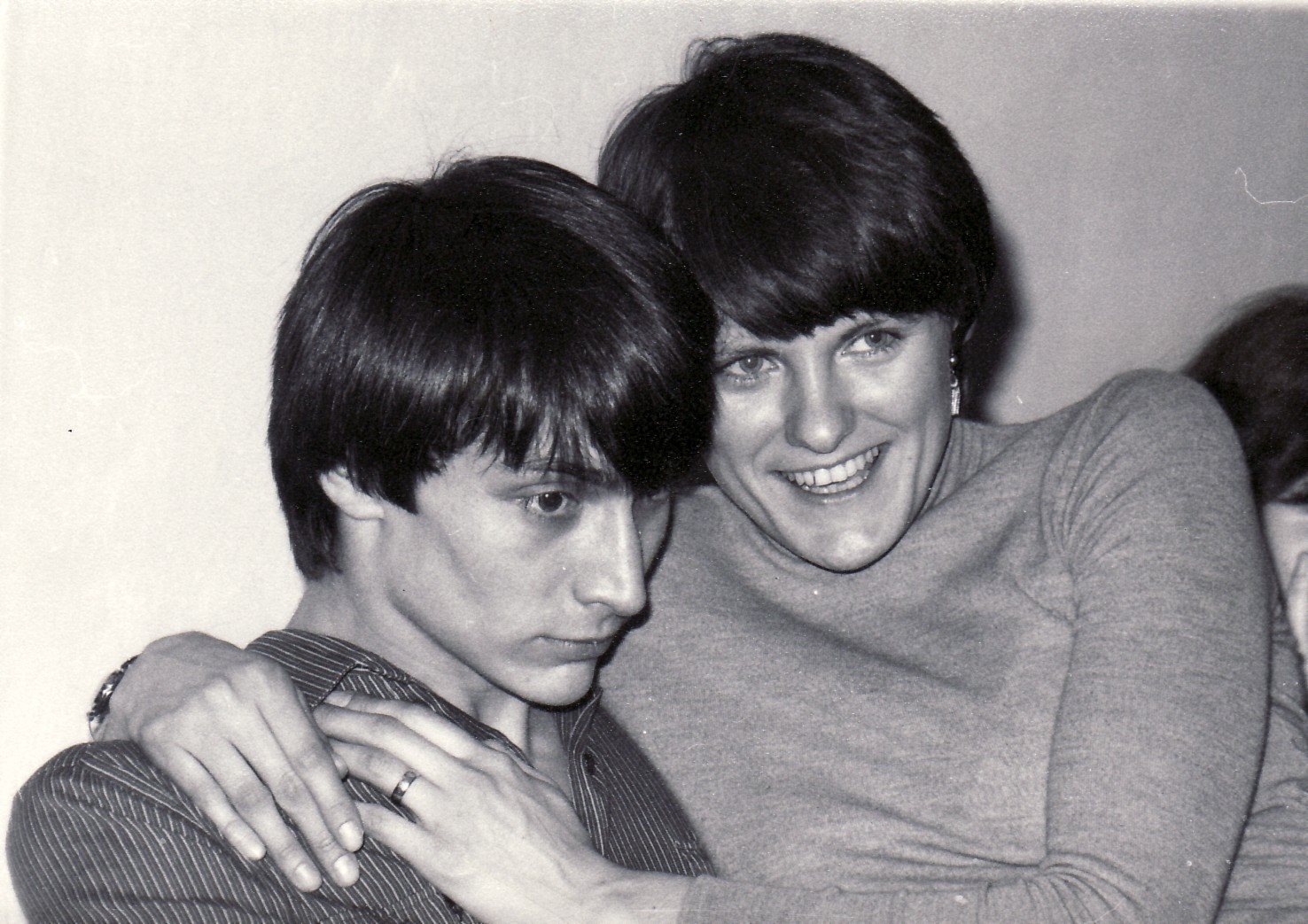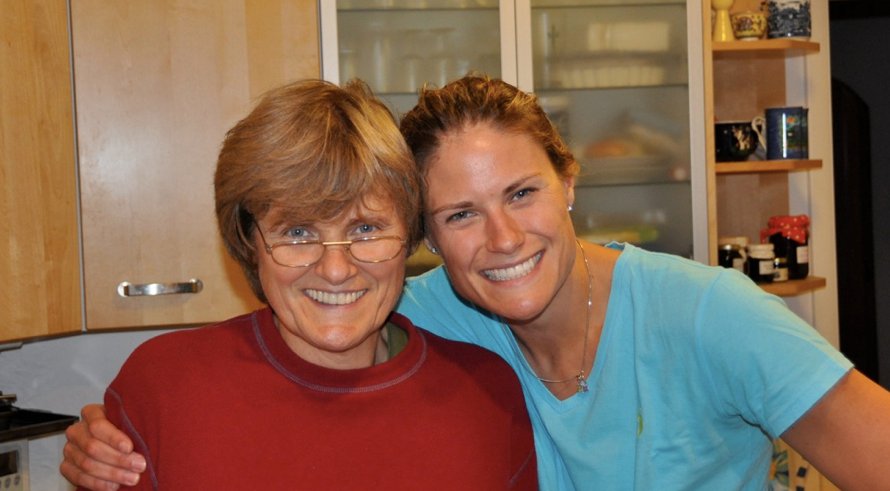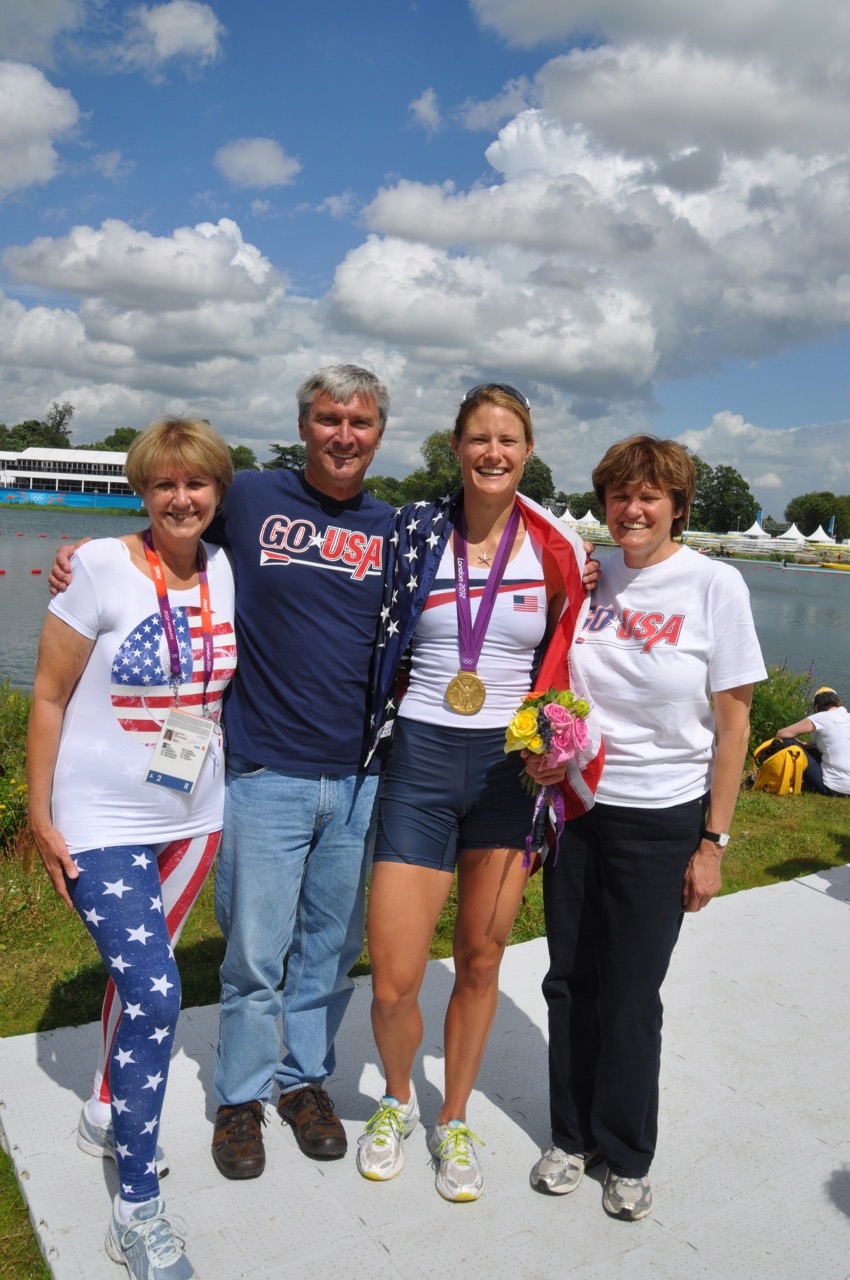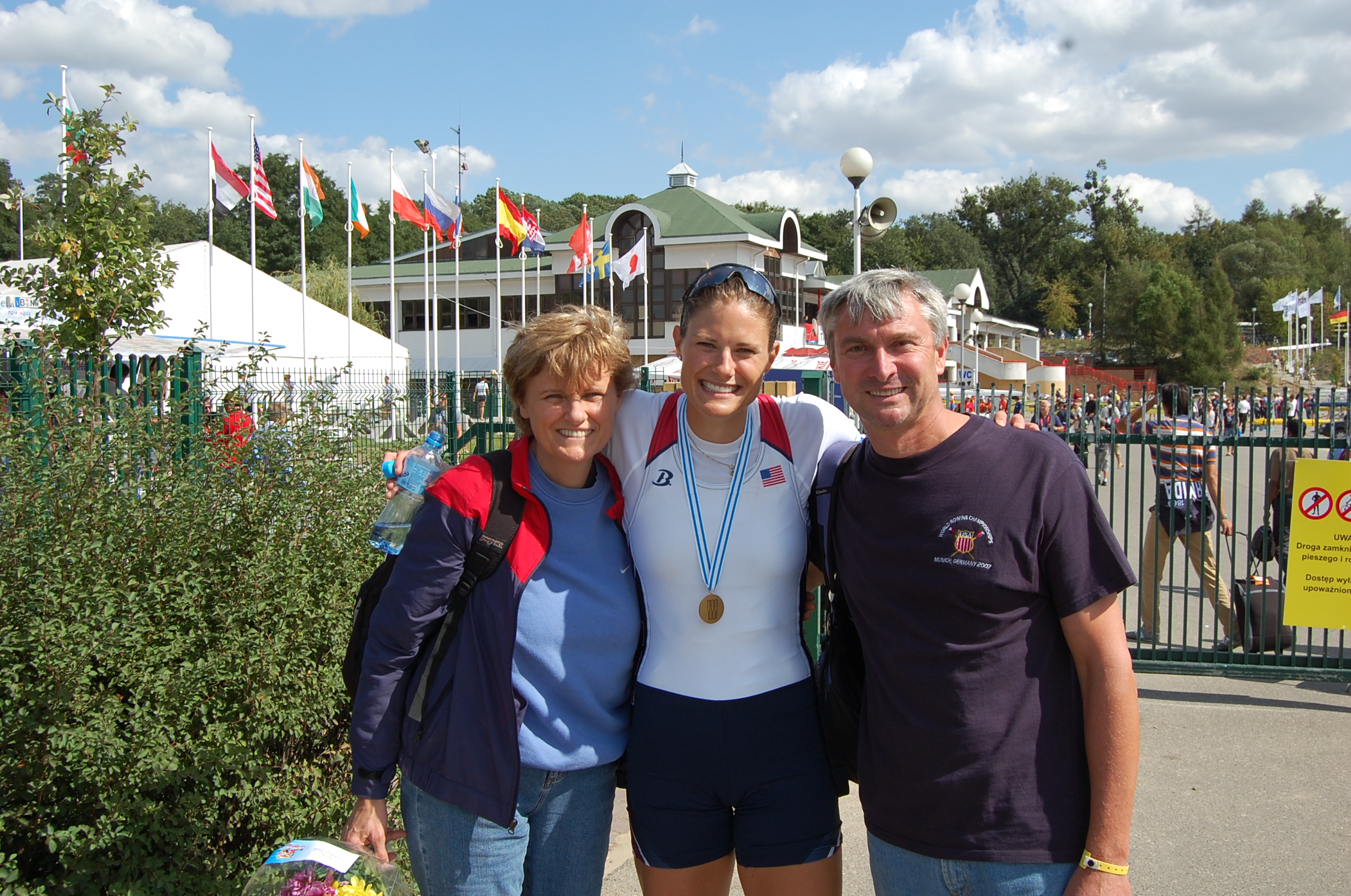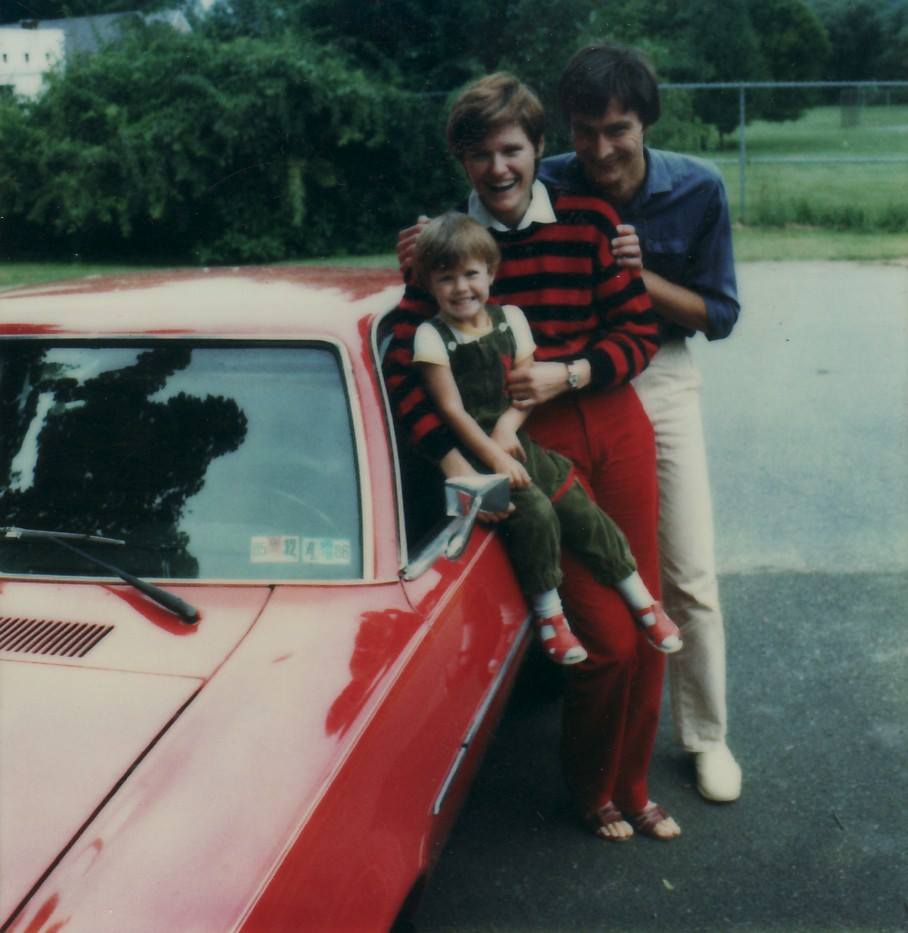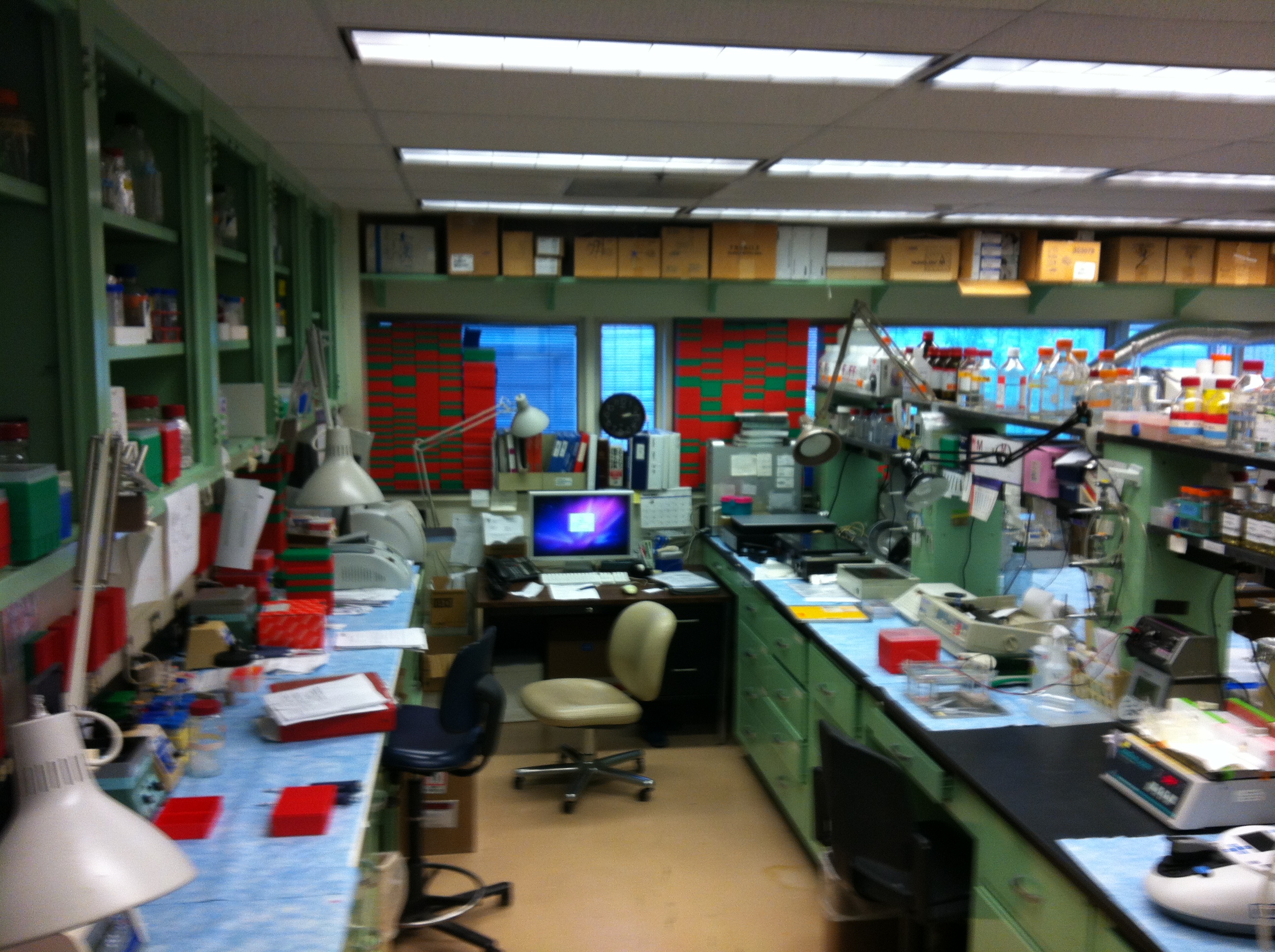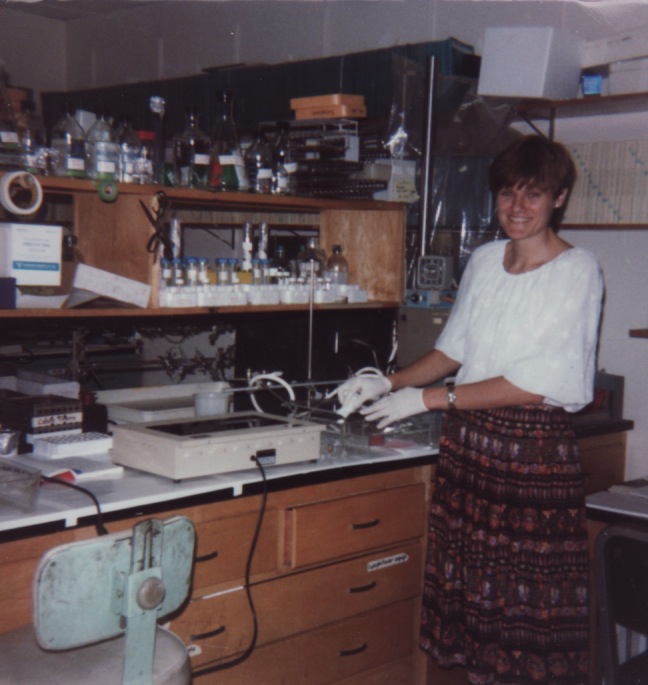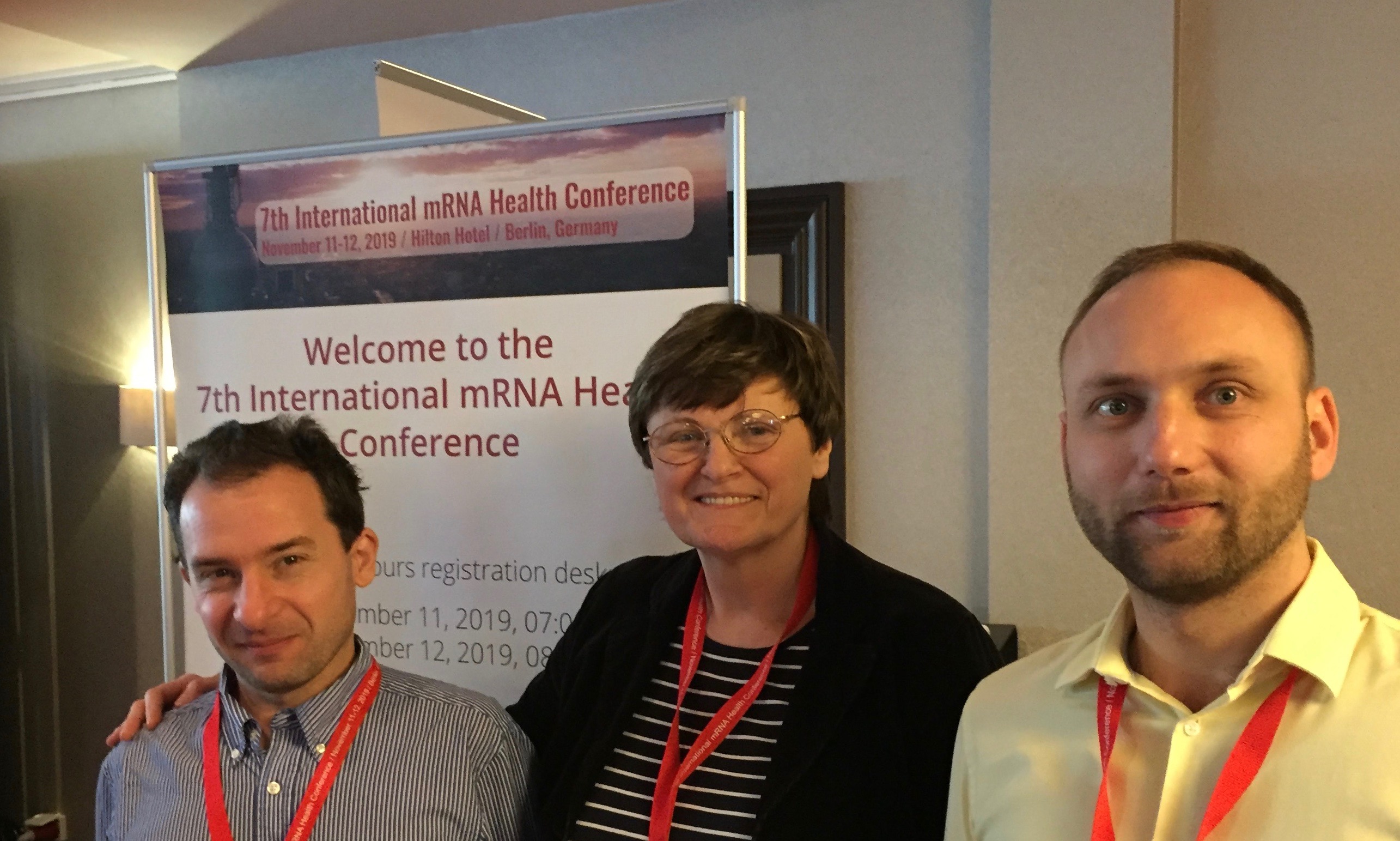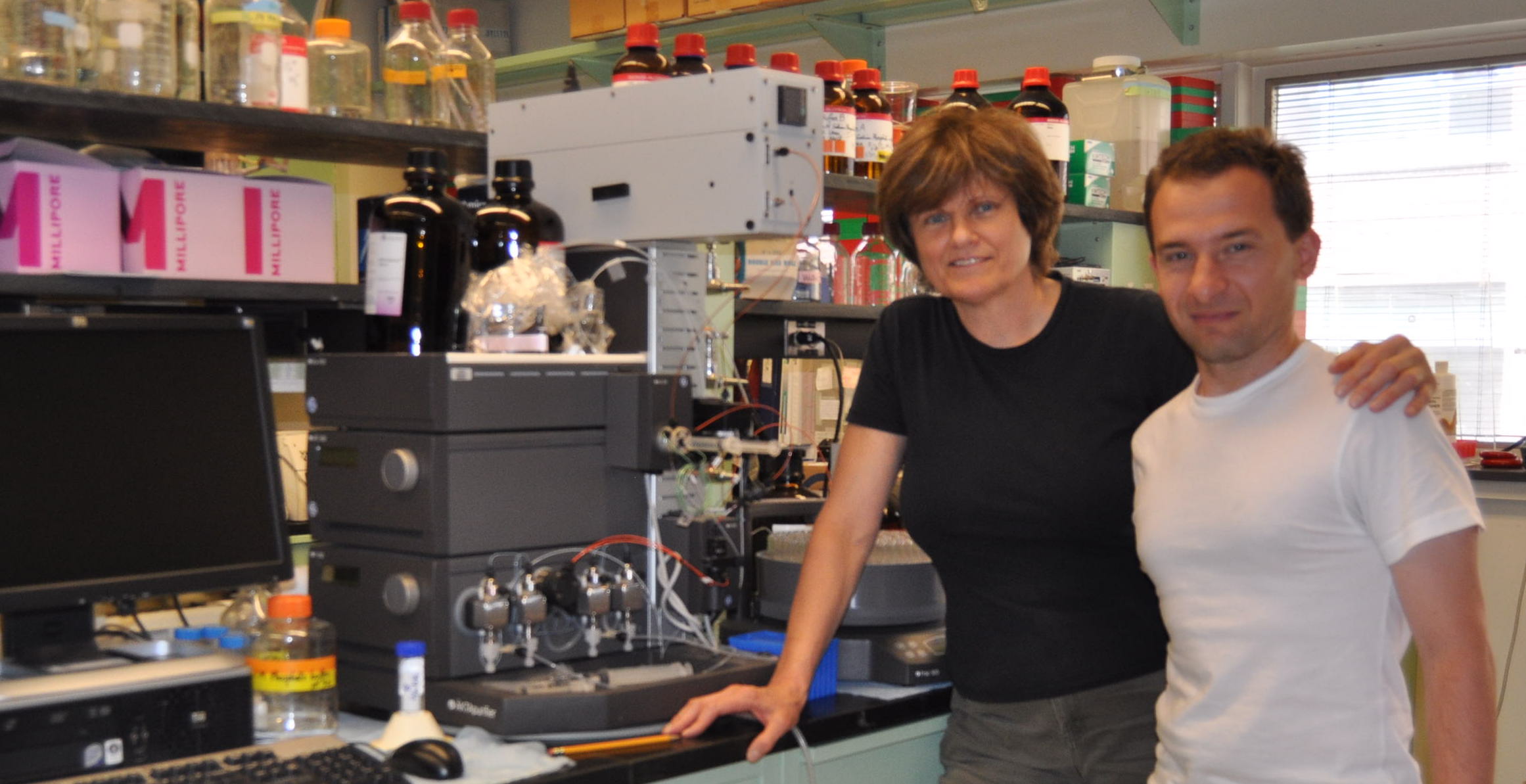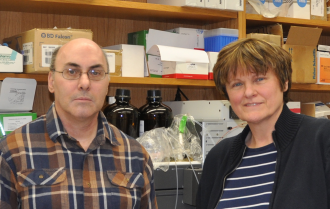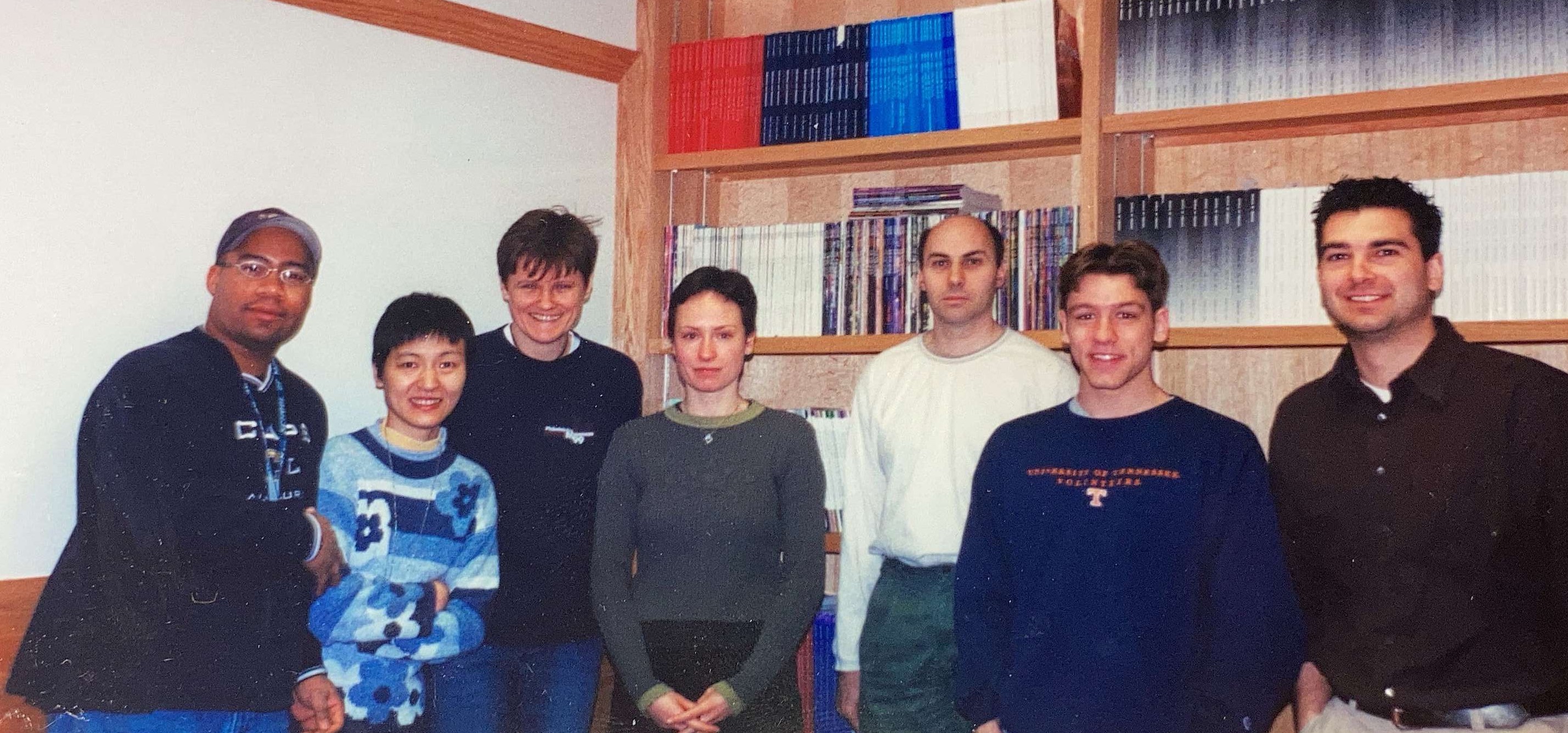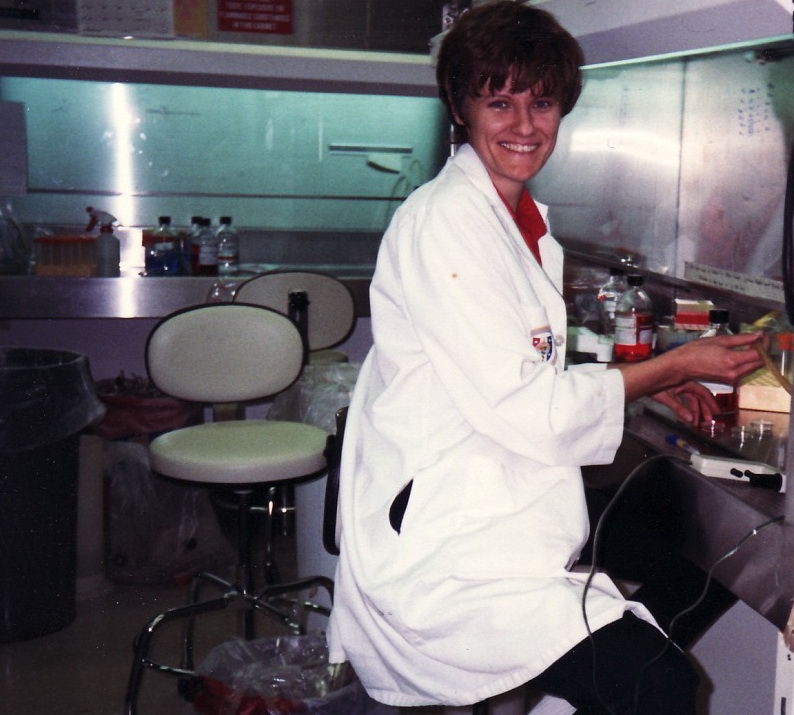
Researcher at the Szeged Biological Research Centre and in the United States
„… Wherever I worked, I tried to concentrate on my tasks because I could control it…”
Katalin Karikó's first job was at the Szeged Biological Research Centre, a national stronghold of life sciences, where she was awarded a fellowship by the Hungarian Academy of Sciences.
Szeged Biological Research Centre, the beginning of the reasearh
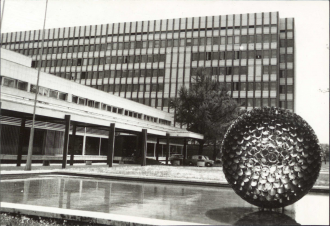 |
| Please click on the picture to open gallery! |
She joined the ranks of young researchers - Eva Kondorosi and Ernő Duda - who were already trying to introduce DNA, or nucleic acid, into mammalian cells in the late 1970s. "It sounded fantastic to me at the time!" - Katalin Karikó recalled her enthusiasm. "I can honestly say that it was only now, that I realised how far ahead of their time the SZBK researchers were". "The RNA of the DNA was prepared, and the presence of the protein was detected," she said, highlighting the significance of the 1985 joint publication. "We found out what is still true today, the most important thing in the application of nucleic acids is how we package them," she said, summing up the lessons of the former work in Szeged.
The research workshop she joined was world-class in the field, but it was dissolved in 1985.
With her family, everyday life
She moved to the United States of America with her family for a job opportunity. In 1985, she began experimenting with modified nucleosides at Temple University in Philadelphia. Three years later she was working with interferons in Washington.
In 1989 she joined the University of Pennsylvania. Despite all of her difficulties, she persisted in her scientific interest in mRNA, the carrier of biological information. At the same time she became involved in clinical teaching.
Life in the USA
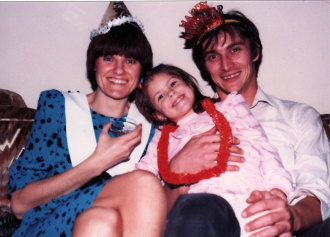 |
Her pioneering discovery of nucleoside modifications suppress RNA immunogenicity, was a pioneering discovery in the study of RNA-mediated immune activation. Her research team, with funding from the National Institutes of Health, demonstrated the suitability of nucleoside-modified mRNA for protein replacement in macaques, paving the way for new types of therapies. The new technology has been the subject of a number of patents of extraordinary importance, granted in several countries, of which she is the inventor.
Working in the USA
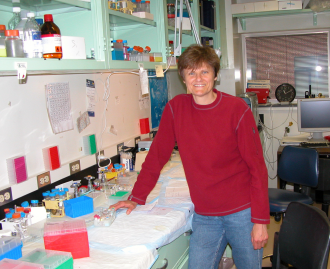 |


 University of Szeged
University of Szeged